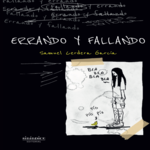Barrett Martin habla sobre el nuevo disco de Tuatara
Barrett Martin Discusses New Tuatara Album, Mad Season & Screaming Trees

Sacado de // From –> http://www.alternativenation.net/
El resumen de la vida musical de Barrett Martin es sin duda uno de los más impresionantes con los que jamás te encontrarás, ya que ha tocado con los Screaming Trees, Layne Staley y Mike McCready en Mad Season, y Duff McKagan en Walking Papers, entre otros. Y ahora, ha vuelto al grupo instrumental con sede en Seattle, Tuatara, con un álbum conjunto que se publicará a finales de este verano, ‘Underworld’ (Billboard recientemente estrenó una canción, «The Skeleton Getdown»). Producido por Martin y mezclado por Jack Endino, ‘Underworld’ se dará a conocer a través del sello musical de Martin, Sunyata Records. Recientemente, el Sr. Martin tuvo la amabilidad de conceder una entrevista a Alternative Nation.
Por qué ha tardado tanto tiempo en llegar una continuación al anterior álbum de Tuatara, ‘The Here and the Gone’?
¿Cómo funciona el proceso de escribir en Tuatara?
Una canción o composición pueden provenir de cualquier miembro de la banda, y entonces simplemente comenzamos la construcción de la idea, la organizamos, esculpiendo una canción. En mi caso, contribuyo mucho sobre las ideas iniciales en contrabajo, vibráfono y piano. A veces uno de mis ritmos de batería se convierte en nuestra inspiración inicial. Peter escribe mucho con la guitarra obviamente, y Skerik está siempre tratando con increíbles melodías exóticas. Una vez que empezamos a martillearjuntos, realmente comienza a sonar como una banda única.
Si queréis leer más (en inglés), pasaros por –> http://www.alternativenation.net/?p=49087
IN ENGLISH
Barrett Martin’s musical resume is certainly one of the most impressive you’ll ever come across, having played with the Screaming Trees, Layne Staley and Mike McCready in Mad Season, and Duff McKagan in Walking Papers, among others. And now, he has returned to the Seattle-based instrumental group, Tuatara, with an album set to be issued later this summer, ‘Underworld’ (of which the Billboard site recently premiered a song from, “The Skeleton Getdown”. Produced by Martin and mixed by Jack Endino, ‘Underworld’ will be released via Martin’s label, Sunyata Records. Recently, Mr. Martin was kind enough to grant Alternative Nation an interview.
Why did it take so long to follow up Tuatara’s last album, ‘The Here and the Gone’?
Part of the delay was that I was finishing my masters degree in anthropology and that took all of my focus for about 3 years. And then after graduating, I moved back to Seattle and started teaching as an adjunct professor at Antioch University, so I had several syllabi to write, classes to teach, and papers to read. During that time I was also writing new music that would eventually become the foundation for the new Tuatara ‘Underworld’ album, but I also started the rock band Walking Papers and our debut album initially came out and I found myself on an 18 month world tour (I am writing this in Eastern Hungary where Walking Papers just played). In between legs of the Walking Papers tour, we recorded and mixed the new Tuatara album. So I recorded tracks in New York, New Mexico, Seattle, Portland, and even New Zealand. But now it’s finally done and about to be released, and it’s a really great 20 song double album. It’s probably the best thing we’ve ever done and well worth the wait.
How does the songwriting typically work in Tuatara?
A song or composition can come from any member of the band, and then we just start building on the idea, arranging it, sculpting it into a song. With me, I contribute a lot of the initial ideas on upright bass, vibraphone, and piano. Sometimes one of my drum rhythms becomes our initial inspiration. Peter writes a lot with guitar obviously, and Skerik is always coming up with amazing, exotic melodies. Once we start hammering it out together, it really starts to sound like a very unique band.
If you want to read more –> http://www.alternativenation.net/?p=49087




